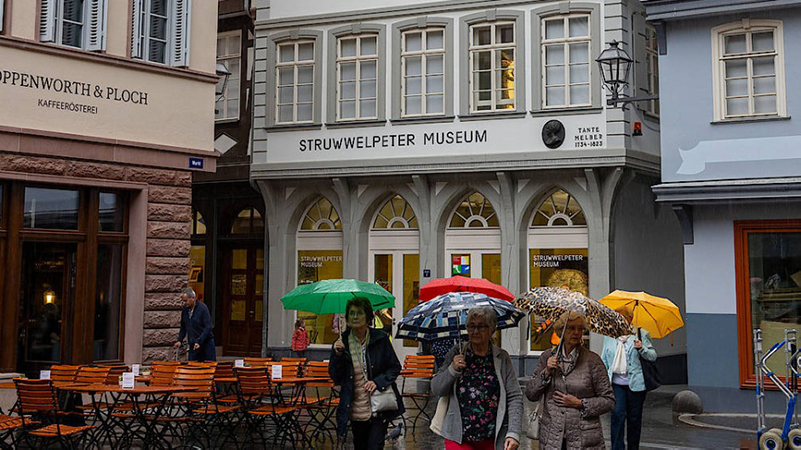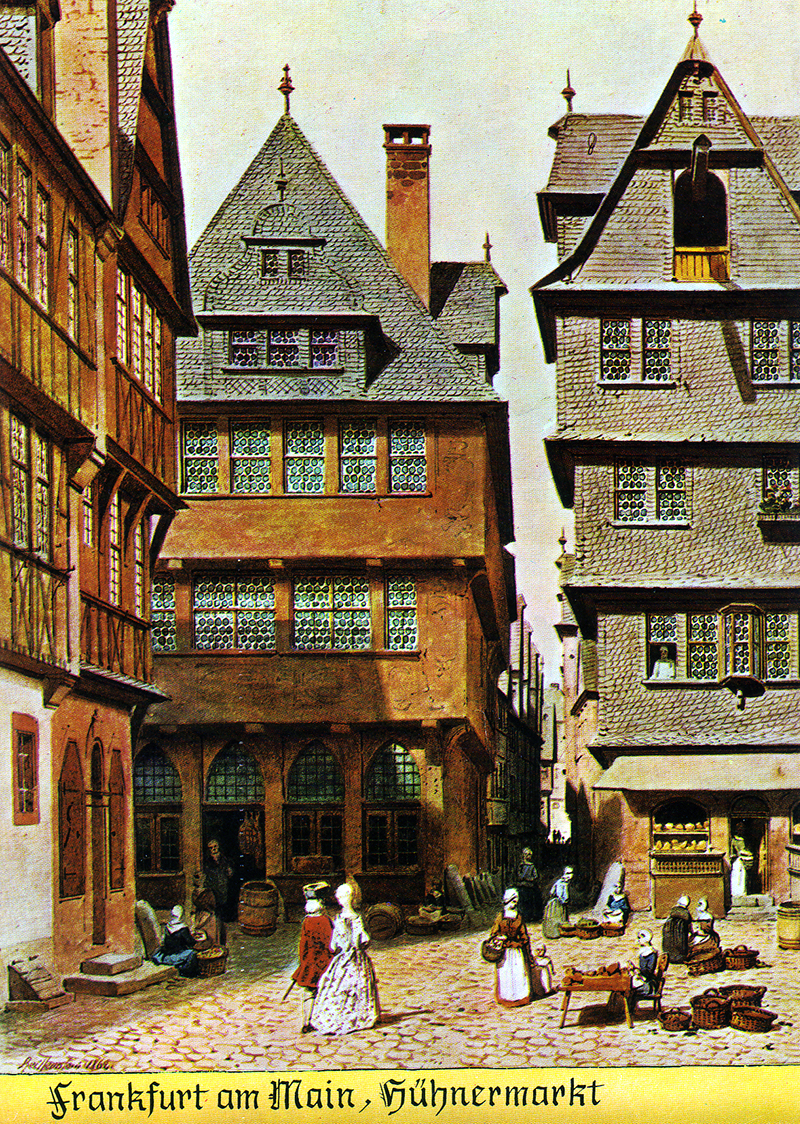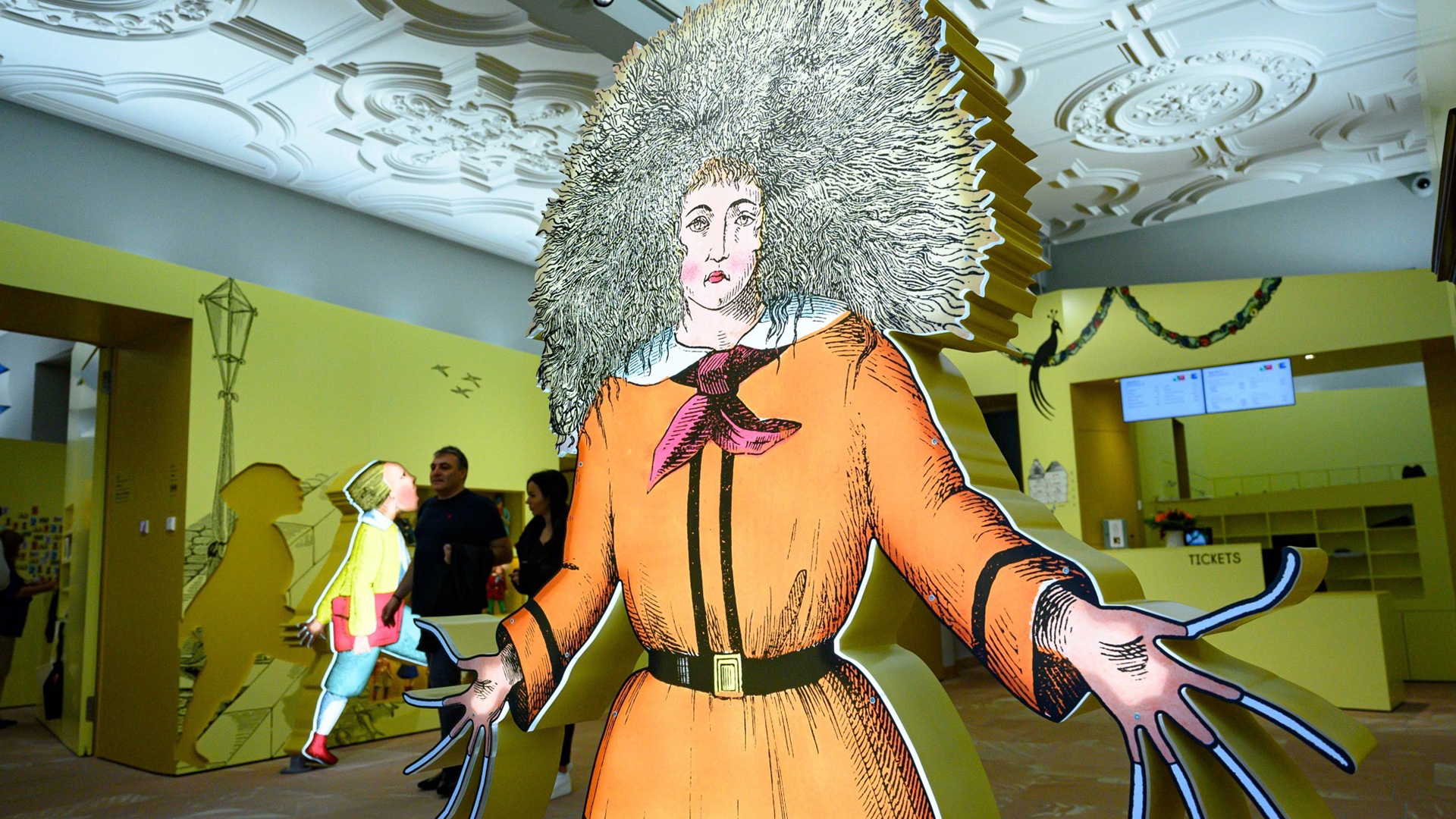Although he may not be a household name outside of Germany, Heinrich Hoffman continues to make an impact 126 years after his death. His stories have inspired Tim Burton, Roald Dahl, Mark Twain and the creators of “The Office” and even informed the iconic, volatile relationship between Bugs Bunny and Elmer Fudd. Some credit him with revolutionizing psychiatric treatment by being the first to treat mental illnesses as legitimate, treatable conditions.
These days, the museum celebrating all of Hoffman’s accomplishments is housed in the former headquarters of Alliance Healthcare Germany in Frankfort, and supported by WBA in a variety of ways – including helping it reopen after coronavirus forced it to close its doors.
The unlikely relationship began when a famous baroque building called Zum Esslinger was rebuilt during Frankfort’s renovation of its historic Old Town. The building was known in the city for both its architecture and one of its former inhabitants, the aunt of Johann Wolfgang Goethe, but it also held special significance to our team in Germany because it had housed the first place of business of one of the founding fathers of Andreae-Noris Zahn AG (ANZAG), which eventually became Alliance Healthcare Germany.
“With Zum Esslinger being miraculously rebuilt, our ‘mother house’ was given back to us,” says Aline Seifert, CEO for Alliance Healthcare Germany.
One of the new building’s first tenants was the Struwwelpeter Museum, which needed its own “mother house.” The museum had been around for 40 years in a different part of the city but had outgrown its current space, and its operators wanted it to be closer to Frankfort’s “Museumsufer,” or museum quarter.

The museum gets its name from Hoffman’s famous 1845 illustrated collection of stories for ages 3 to 6 (the title character, Struwwelpeter, or “Shockheaded Peter,” is a little boy who refuses to bathe and is ultimately ostracized by his friends and neighbors). While they seem dark by today’s standards, Hoffman’s children’s stories were once considered humorous and playful morality tales meant to teach valuable lessons. Literary and cinematic scholars have credited the Struwwelpeter collection with introducing iconic characters like “Scissorman” into folklore, and the tales have even made their way into modern pop culture with references in “The Office,” “Family Guy” and “Dr. Who.” Hoffman’s bright, colorful illustrations are often referred to as precursors of comic books.
Aline and her colleagues at AH Germany had grown up hearing these stories and knew Hoffmann had a deep connection to healthcare. But the fact that the museum was moving into their company’s old headquarters prompted them to do more research. They learned that as a physician, Hoffmann had treated the sick and poverty-stricken in the surrounding villages free of charge; later in his life, he became the medical director of the psychiatric clinic in Frankfurt, where mental illness was treated as a medical condition instead of a character flaw or demonic possession – a revolutionary approach in the middle of the 19th century.
Aside from the shared history in healthcare, it was the association responsible for the Struwwelpeter Museum that really captured the attention of AH Germany’s corporate social responsibility team. The non-profit frankfurter werkgemeinschaft e.V. (fwg) supports the rehabilitation, integration and care of mentally ill and handicapped people, running the museum as a non-profit inclusion organization that employs people with and without disabilities. At the museum shop, products aimed at children and adults have been manufactured in workshops by people with mental health issues and physical disabilities, providing additional job opportunities.
“With so much reference to health and history, and the opportunity to support an organization dedicated to such an important cause, a relationship with the museum was a logical step for us,” says Stephan Ahlf, head of communications for Alliance Healthcare.

Last September, the new Struwwelpeter Museum held a grand opening for its new space at Zum Esslinger that featured local dignitaries and speakers, including a descendant of Hoffmann. Seifert and her Alliance Healthcare colleagues also attended.
Unfortunately, the museum had to be temporarily closed six months later due to the coronavirus. When it was finally allowed to reopen, Alliance Healthcare Germany was there to help. The company supplied all museum employees with PPE equipment and hand sanitizer, helping ensure they could carry on their work while keeping visitors and staff safe and healthy.
“This contribution is just part of our commitment to the Struwwelpeter Museum, but it really speaks to why our partnership makes sense,” says Ahlf. “The museum’s mission is not only to preserve Heinrich Hoffmann’s stories, but his intellectual legacy. Dr. Hoffmann worked tirelessly for his patients; at WBA, we aim to do the same for those we serve. We were happy that we could help the museum by providing them with the healthcare products they need to keep their doors open during this difficult time.”
Considering it was sparked by chance, one might say the ongoing partnership between AH Germany and Struwwelpeter Museum is a bit of a fairy tale of its own. But unlike the museum’s namesake, this story has a happy ending.

